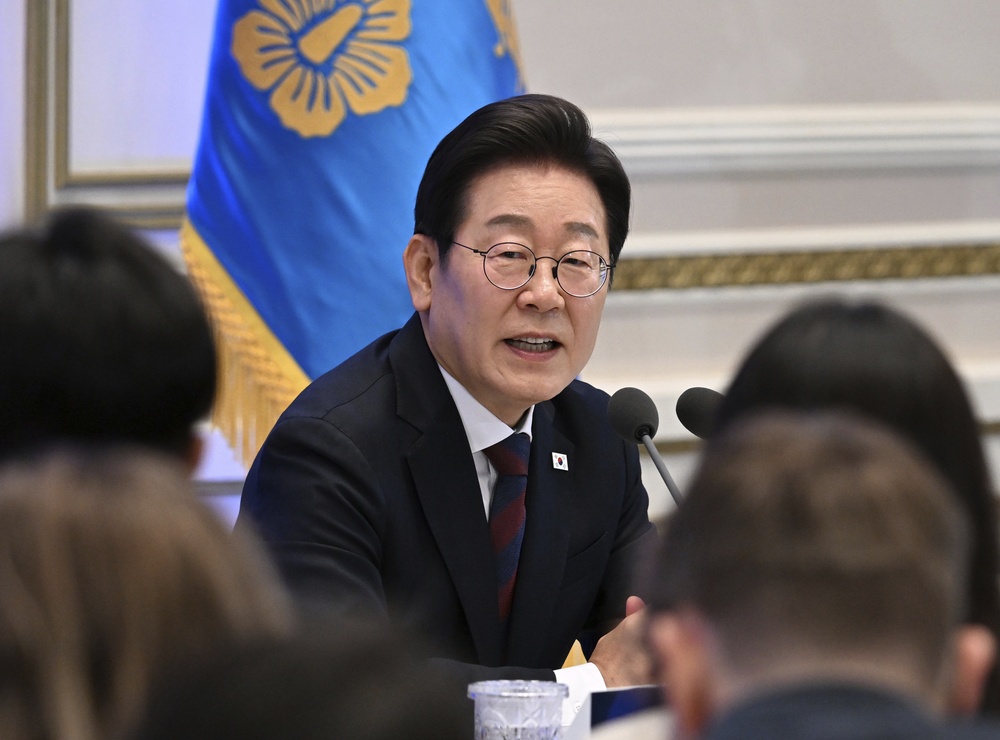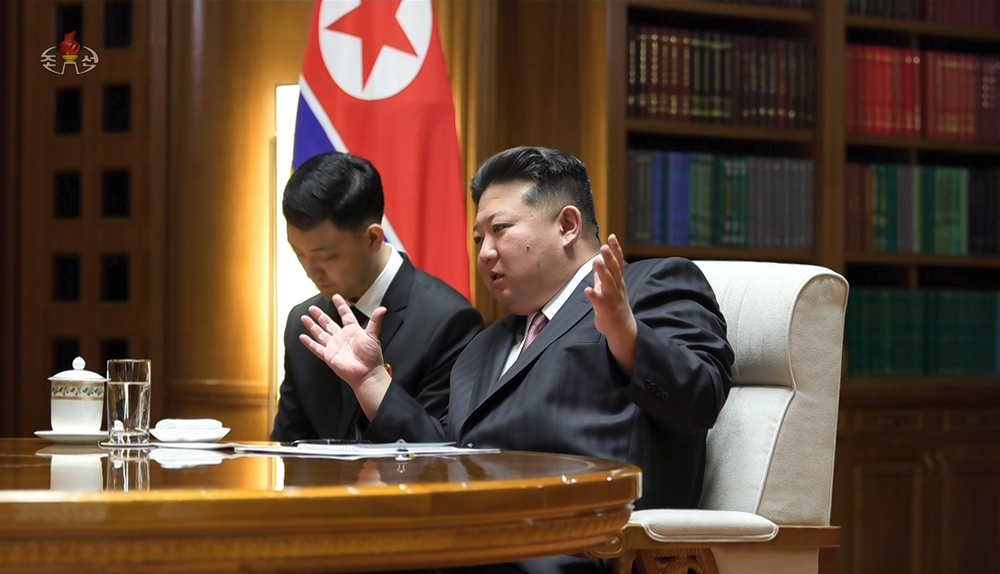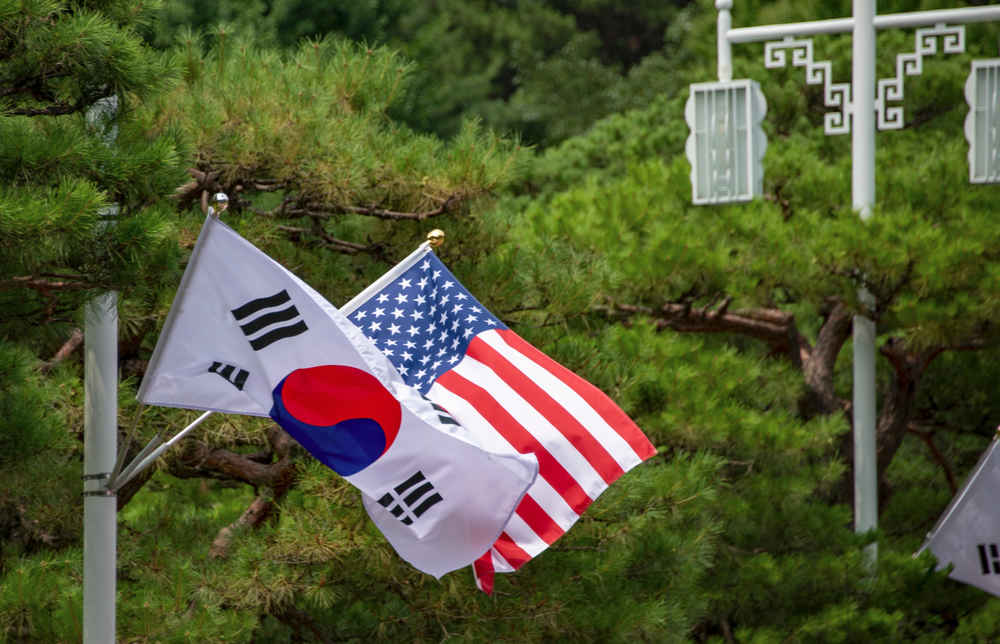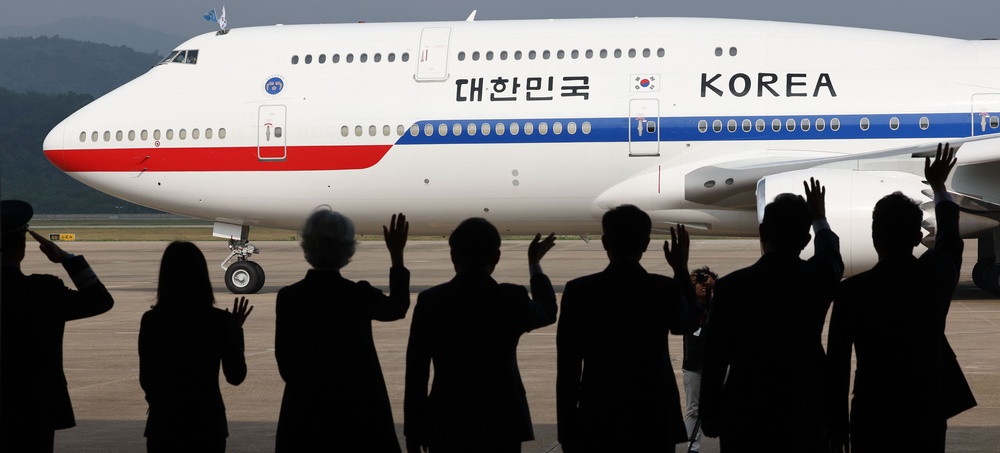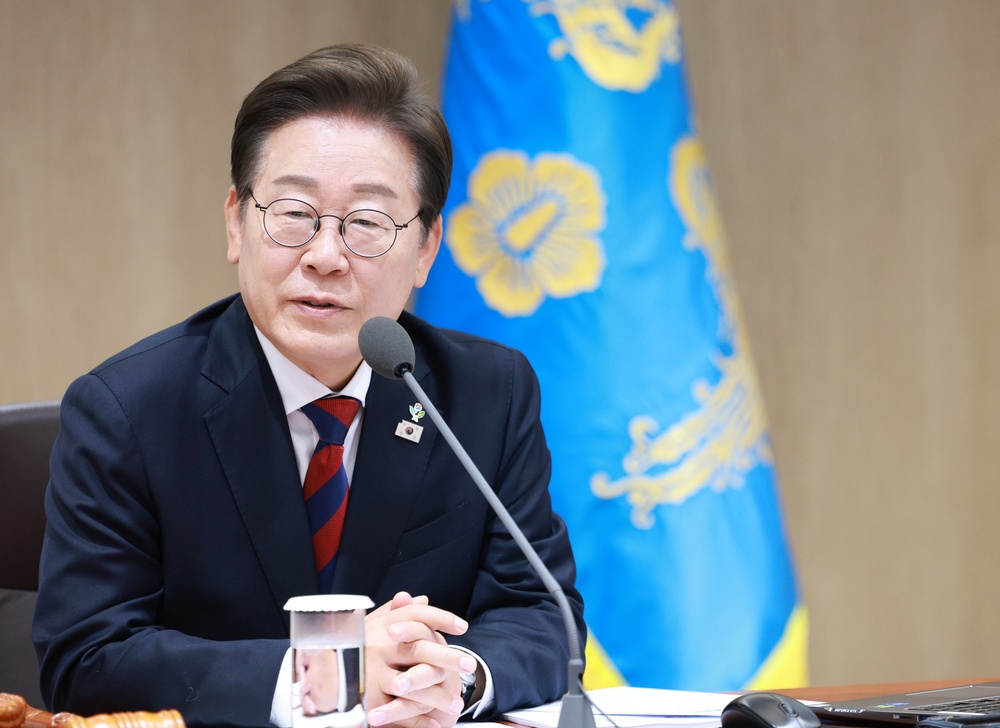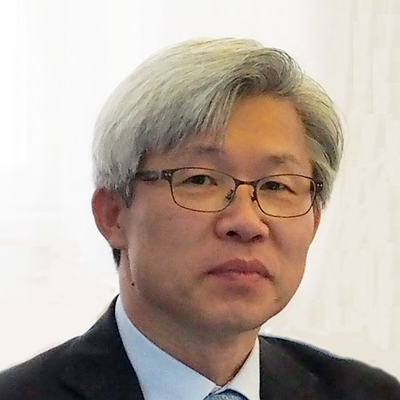
- #South Korea
- #US-ROK Alliance
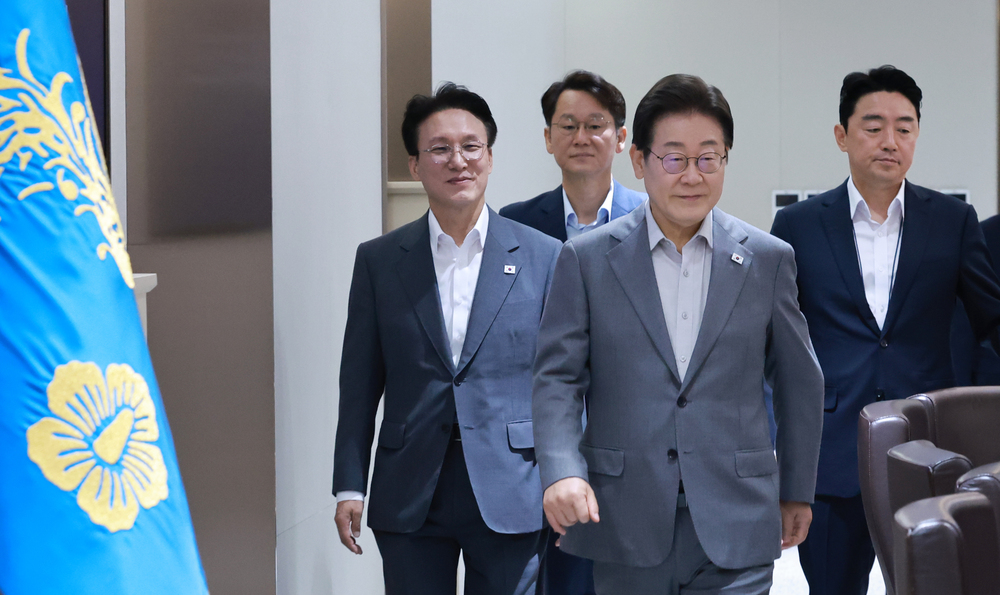
- President Lee Jae-myung's
recent inauguration, following a period of political turmoil including his
predecessor's impeachment, signals South Korea's return to democratic normalcy.
His participation in the G7 Summit, emphasizing "unity,"
"people's livelihood," and "pragmatic" foreign policy, aims
to restore international trust and diplomatic engagement.
- The Lee administration
faces a complex global landscape, particularly with a shift in US foreign
policy under the Trump administration towards isolationism and a "might
makes right" approach, threatening the rules-based international order.
This, coupled with the collapse of the free trade system and intensifying
US-China rivalry, presents significant challenges for South Korea's
export-dependent economy.
- A key challenge for
President Lee's "pragmatic foreign policy" will be balancing
alignment with the US-ROK alliance, which may involve contributing to US
deterrence against China, while also maintaining open engagement and closer
ties with China, a crucial trading partner. The need to avoid being seen as
unprincipled or opportunistic in this delicate balancing act is paramount.
Coming
Back as Democracy
South Korea has recently
undergone a dramatic change in leadership, with President Lee Jae-myung taking
office after a period of intense political upheaval, including the impeachment
of his predecessor and an early presidential election. As the new
administration seeks to both heal domestic divisions and reposition South
Korea’s foreign policy, it will be interesting to see how it will differ from
its predecessor, Yoon Seok-yul, on key foreign and security issues.
President Lee Jae-myung took his
first step in pragmatic diplomacy by attending the G7 Summit held in
Kananaskis, Canada, June 16-17, as his first overseas engagement since taking
office. The G7 Summit is a consultative body where the leaders of the seven
major countries—the United States, the United Kingdom, France, Germany, Italy,
Japan, and Canada—along with the EU, gather to discuss global political and
economic issues. It was launched in 1975. Originally known as the G8, Russia
was expelled in 2014 due to its forced annexation of Ukraine, reducing the
group back to the G7.
This year's G7 Summit marked its
50th anniversary and focused on topics such as global security, energy
security, and artificial intelligence (AI). On the first day, June 16,
President Lee held bilateral meetings with key leaders from non-member invited countries.
On June 17, he participated in an expanded session that included both G7 member
states and invited nations. During the summit, President Lee spoke twice,
addressing the diversification of energy supply chains and the integration of
AI with energy.
In many ways, President
Lee Jae-myung’s attendance at the G7 summit is seen as a signal to the
international community that South Korea has returned to ‘normalcy’. South
Korea has experienced a period of turmoil and crisis in its deeply divided
domestic politics, from the attempted imposition of martial law by former
President Yoon Seok-yul late last year, to the impeachment and June 3
presidential election. President Lee’s participation in the G7 Summit was,
first and foremost, his first international stage to announce to the
international community that ‘democratic Korea is back,’ but it also marked the
beginning of the restoration and resumption of normal diplomacy, which had been
suspended for the past six months. Most of the domestic media also evaluated
the G7 Summit as an opportunity to actively pursue pragmatic diplomacy based on
the restoration of democracy, diplomacy, and economic and trade.
If we were to summarize
the content of President Lee Jae-myung’s speech after taking the oath of
office, three keywords outstand particulalry: ‘unity’, ‘people's livelihood’
and ‘pragmatic’. ‘Unity’ or integration is all about restoring democracy and
overcoming the impeachment crisis to alleviate the country’s deep divisions.
Lee emphasized communication and dialogue, stating that there would be no
conservative/progressive distinction in the future, and that both Park Chung-hee
and Kim Dae-jung policy would be used if necessary. ‘People’s livelihood’ is
the key to navigating the domestic and international economic challenges facing
South Korea. It is in this context that President Lee Jae-myung ordered the
formation of an emergency economic inspection task force in his first executive
order. South Korea has been hit hard by the Trump administration’s tariff war.
‘Pragmatic’ aims to strengthen South Korea-Japan cooperation based on the solid
foundation of the U.S.-ROK alliance, promote pragmatic diplomacy with
neighboring countries, and achieve peace on the Korean Peninsula through
communication and dialogue while preparing for North Korea’s military
provocations.
Foreign
Policy Environment for the Lee Administration
However, the foreign
policy environment in which pragmatic diplomacy has to navigate is not easy.
Firstly, it is important to note the changes in the United States under Trump.
In the 20th century, the United States built its role identity as a benevolent hegemon
that pursued the familiar ‘rules-based international order’ or ‘liberal
internationalism’ doctrine. Today, however, in the post-unipolar era, America’s
self-image is in the midst of a transition to an inherently non-liberal and
coercive hegemonic role, and Trump and his Make America Great Again (MAGA)
movement are leading the way. At the outset of Trump’s second term, the most
visible manifestations of a 19th-century imperialist or great power identity
are evident. Trump’s references to annexing Canada as the 51st state,
purchasing Greenland, and taking back control of the Panama Canal suggest that,
a ‘golden age’ ideal to which U.S. must return to rebuild a ‘Great America’, is
regressing to the late 19th century-style great power politics. Taken together,
this suggests that, in the future, U.S. will be both isolationist, pursuing a
grand strategy of offshore balancing, and expansionist, overtly consolidating
its sphere of influence.
The change in American
identity is immediately leading to the dismantling of the rules-based
international order, or the regression of the liberal international order. A
new era of international order is dawning in which money and power, rather than
international norms, institutions, and rules, will dominate. Trump and Putin
are driven by the belief that ‘might makes right,’ which is leading to the
decline of values diplomacy, which was once the guiding principle of U.S.
diplomacy. The U.S. veto of a resolution condemning Russia’s invasion of
Ukraine at the United Nations General Assembly, and voting along with Russia,
Hungary, North Korea, Iran, Nicaragua, and others on the same side, symbolizes
the decline of U.S. values diplomacy.
The retreat of the
rules-based international order heralds the rise of a multipolar order, Yalta
2.0, or great power politics. Ultimately, the world envisioned by Trumpism is
one in which the three major powers—the U.S., China, and Russia—build their
respective spheres of influence, presumably creating a stable 19th-century
balance of power through geopolitical deals and coordination. Reflecting this
reality, the Munich Security Report 2025 indicates that, in one form or
another, the international order will move towards multipolarization.
The collapse of the free
trade system and the retreat of globalization are as much of a challenge for
South Korea as the decline of the rules-based international order. The trade
environment for the new South Korean government is fraught with adverse
factors, including tariff wars, Chinese oversupply, and the collapse of
multilateral trading norms. The source of the triangular wave hitting Korea is
the US-China hegemonic competition, and the restoration of the multilateral
system is unlikely in the near future. In the short term, the challenge is to
cope with the external shocks of Trump’s tariff war and China’s manufacturing
rollback. In the long term, the national challenge is to overcome the
disruption of the global trade order and strategize how to respond to the new
trade paradigm. Trump’s erratic and all-encompassing tariff wars are wreaking
havoc on the global economy. The economic prosperity and free trade environment
that the world has built through free trade as the foundation of the liberal
international order has reached a fundamental inflection point. For
export-dependent countries like South Korea, tariffs are an urgent and significant
factor affecting companies’ investment and production decisions.
Challenges
for ‘Pragmatic Foreign Policy’
Recently, several signs
have emerged regarding a possible change in the size and role of the U.S.
military in South Korea. Proposals to redeploy approximately 4,500 U.S. troops
to other parts of the world and the ‘One Theatre’ concept being discussed
between the U.S. and Japan suggest that the nature of the U.S. Forces in Korea,
which was mainly intended to be a deterrent to North Korea, could change
dramatically to be a deterrent to China. Given the Trump administration’s
stance, several scenarios are conceivable, including a reduction, withdrawal,
or strategic flexibility for U.S. forces in South Korea to be used for deterring
China. The Trump administration’s pivot to the People’s Republic of China is
changing U.S. alliance policy. The Lee administration must find a way to
contribute to U.S. deterrence of China and complement finite U.S. defense
resources as an ally without undermining South Korea’s security. A key question
is how and to what extent South Korea will be involved in U.S. containment of
China.
President Lee Jae-myung
has made it clear since his candidacy that he is willing to forge closer ties
with China. Economically, of course, this makes sense, as China is a
significant trading partner for South Korea. However, given the Trump
administration’s focus on China as an adversary of the United States, this
stance could be seen as contrary to U.S. interests. It is worth considering the
implications of the White House’s initial reaction after the South Korean
election, which described the election as ‘free and fair’ but noted that it was
‘concerned about and opposed to China’s interference and influence in
democracies around the world.’
For Lee’s government, the
key challenge will be to align with Trump’s America First policy while appropriately
moderating Washington’s excessive demands. President Lee’s basic position is
that there is no better security path than alignment with the United States.
His support for the U.S.-South Korea alliance is a pragmatic measure to enhance
security rather than ideology or values. Furthermore, for true pragmatic diplomacy
to be possible, South Korea must demonstrate an openness to engage with
countries that have hostile relations with the United States, such as China,
Russia, and North Korea. While this represents a shift away from Yoon’s value
and ideological diplomacy, pragmatic diplomacy must also be wary of being read
as unprincipled and opportunistic. Finding a genuinely pragmatic path between
the U.S. and China will be the biggest challenge in Lee’s diplomacy.

Sang Hyun Lee is a senior research fellow at the Sejong Institute and President of the Korea Nuclear Policy Society (KNPS). He earned his B.A. and M.A. from Seoul National University and his Ph.D. in Political Science from the University of Illinois at Urbana-Champaign in 1999. Previously, he was a research fellow at the Korean Institute for International Studies and the Korea Institute for Defense Analysis. He also served as a policy advisor for the Ministry of Foreign Affairs, Ministry of National Unification, and Ministry of National Defense, including as Director-General for Policy Planning at the Ministry of Foreign Affairs from 2011 to 2013. He is a member of the Asia-Pacific Leadership Network (APLN) for Nuclear Nonproliferation and Disarmament and the Korea-US Nuclear Policy Leadership Initiative (NPLI). He has been a visiting scholar at the Institute for Development and Security (ISDP) in Stockholm and the Stimson Center in Washington D.C.
